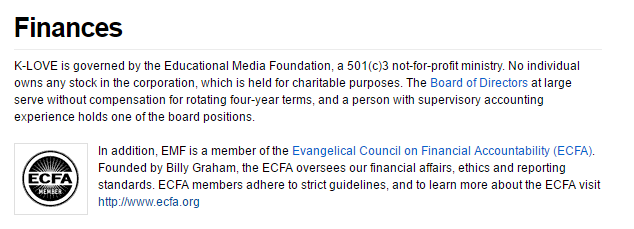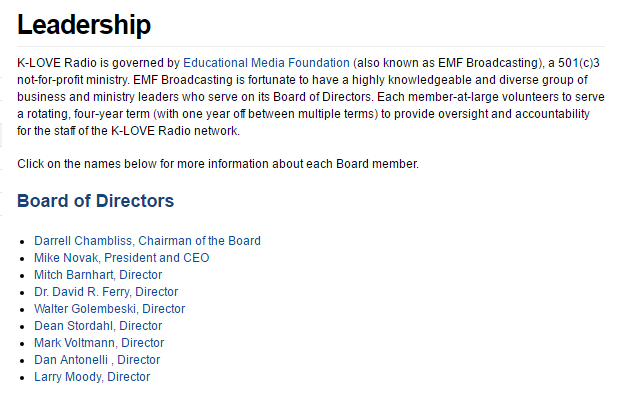Last Sunday, Jennifer Miller’s article posted on Slate.com about Nashville-based ministry Mercy Multiplied raised concerns about religiously based residential treatment for women. Miller interviewed several former residents who told troubling stories about their time in one Mercy’s four residential facilities. Specifically, the former residents said they were discouraged from taking medication for mental illness, and said the program encouraged the removal of demons as a means of ridding residents of their emotional pain and problems. Calling themselves survivors, they said they were harmed by their time in the ministry.
To find out more about Mercy’s point of view, I contacted Jackie Quinn who is Director of Communications at Mercy Multiplied. The following is a Q&A with Quinn (one question also has a response from CEO Christy Singleton) which covers some of the key concerns raised by the Slate article (my questions are in bold print, following by Quinn’s replies).
Throckmorton: Do you have a direct response to the Slate article?
Quinn: Mercy is not responding to the Slate article.
Are Mercy’s counselors licensed by the state?
Counselors are not required to be licensed by the state; however, about half are licensed or pursuing licensure. Here are the credentials for counselors as found on our website under Program FAQs:
Each counselor at Mercy is required to hold a bachelor’s degree from an accredited university in social work, psychology, counseling or a related field. 80% of our counselors have master’s degrees.
What kind of graduate degrees are held by your counselors? Are they in counseling or ministry or both?
(In response, Quinn gave me a list of degrees held by 15 counselors. In summary, five have MA or MS degrees in counseling, with two having a master’s degree in marriage and family therapy. The remaining master’s degree titles are social work (MSW), clinical mental health counseling, education with a concentration in clinical counseling, human services counseling, counseling and human services, professional counseling and family ministry.)
Do all girls go through Nancy Alcorn’s 7 step model?
As stated on our website under Program FAQs, “Trained counselors lead residents through the program curriculum,” Choices That Bring Change, so yes, all resident go through this curriculum (below is the full excerpt from our website):
Our Christian-based program curriculum, “Choices That Bring Change,” is the result of our three decades of ministering to girls in crisis and combines biblical principles of healing and unconditional love with best-practice clinical interventions, as outlined in Ditch the Baggage by Nancy Alcorn.
Trained counselors lead residents through the program curriculum, helping them explore issues of faith, forgiveness, family, overcoming abuse and past hurts, and general life principles. In addition to the curriculum, program resources feature internationally acclaimed teachers such as Beth Moore, Priscilla Shirer, Joyce Meyer, Dave Ramsey, Andy Stanley and Charlotte Gambill. Residents participate in both individual and group counseling on a weekly basis.
Are girls ever asked to let Jesus reveal a past trauma?
Our counseling procedures do not permit the use of restored memory therapy or other imagery techniques designed to evoke memories.
Let me be more specific. Do counselors ever indicate to girls that Jesus has revealed a past trauma to either the girl or the counselor? This could be theophostic type counseling or some similar approach.
Mercy counselors do not use theophostic counseling or restored memory therapy or any technique like you are describing in your question.
What is Mercy’s position regarding the use of medication to treat mental and emotional problems.? Is medication discouraged for girls who are depressed or anxious?
Regarding medication from the website under program FAQs:
Although we are not a medical facility, some of the young women who enter our program have medical issues that need to be managed. To that end, our homes employ medical staff, and we provide adequate medical care for residents – including care from outside professionals who are called upon to help on a regular basis, as there is not a physician on staff.
Mercy does not discourage the use of medication. In fact, Mercy values the role medical intervention and pharmaceuticals have in helping young women struggling with depression, anxiety and other psychiatric conditions. Mercy staff follow directions from outside physicians with regard to medication as it is not our place to make medication determinations. The overwhelming majority of our residents are on some kind of medication during their stay at Mercy some of which they have in place before coming and some of which is prescribed after they come into the program. As is common in therapy and counseling, when a young women progresses through processing pasts hurts and trauma, she may find that certain medications do not seem to be needed anymore. However, this is something she would handle with the outside physician she sees and not determined by Mercy staff.
About medication, is this a change in policy or belief since the 2008 video of Nancy Alcorn (see video below) saying that you don’t medicate demons?
The belief about medication does not reflect a change in policy or belief. Mercy has always had that stance and belief.
Can you help me reconcile your statement about medication and the sermon in 2008 where Nancy Alcorn says “Jesus did not say to medicate a demon.”
I was not working at Mercy in 2008, so I checked with Mercy’s Executive Director, Christy Singleton, who was working here, for a response. Here is her response:
As you likely have discovered in your research, Nancy is from a Charismatic background, and the video you reference from 2008 was filmed during a worship service in which Nancy was speaking to a Charismatic congregation. Ever since Jesus taught his disciples to overcome the evil of the world, often referenced as “demons” or “demonic forces” in English translations of the Bible, Christians from many traditions have been rejecting evil, praying against evil forces, praying against the devil, and asking God to relieve them from oppression of demonic forces, or demons. Mercy follows in this same Christian tradition of rejecting all forms of spiritual darkness. (This is not just a Charismatic stance; witness any Methodist confirmation or baptism and attend to the liturgy.) Certainly, in a Charismatic church, you would expect to hear the term “demon” or “demons” to reference the evil Christians are to reject. In this video, Nancy was addressing a Charismatic congregation and speaking about spiritual issues. That being said, Nancy’s statements are not incompatible with our stance regarding medication, nor has Nancy ever been against medication when medication is warranted.
Simply put, Mercy does not discourage the use of medication. In fact, Mercy values the role medical intervention and pharmaceuticals have in helping young women struggling with depression, anxiety, and other psychiatric conditions. Mercy staff follow directions from outside physicians with regard to medication. In fact, the overwhelming majority of our residents are on some kind of medication during their stay at Mercy; sometimes the medication was in place before attending our program, and sometimes the medication is prescribed after they come into the program. In many situations young women graduate from our program still on medication. It is important to note that every case is different. As is common in therapy and counseling, when a young woman progresses through processing pasts hurts and trauma, she may find that certain medications do not seem to be needed anymore. However, this is something she would handle with her physician and is not determined by Mercy staff.
The clip of Nancy Alcorn talking about removing demons and not medicating them is below and full sermon is also embedded below.
[youtube]https://youtu.be/7o9HDXqBl0c[/youtube]
Full sermon:
[youtube]https://youtu.be/-r-PEFhZ3uE[/youtube]



